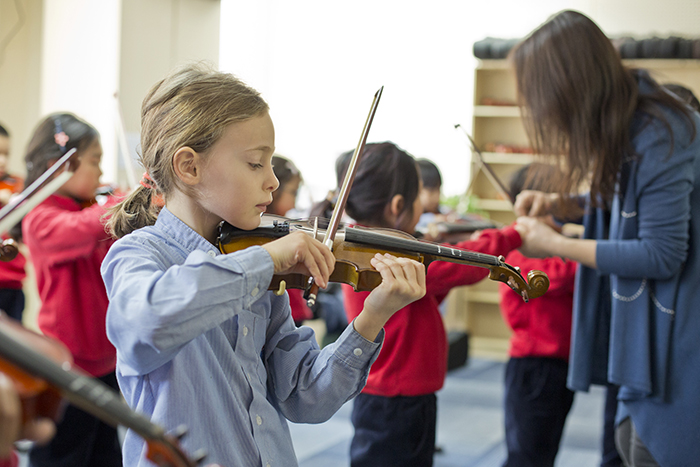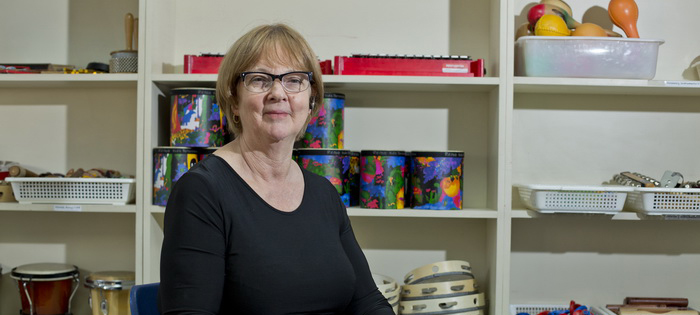Music teachers have long argued for the wider educational benefits of learning a musical instrument. Now a major study conducted by a US university has found serious evidence to back them up.
The five-year study, begun in 2012 by the Brain and Creativity Institute at the University of Southern California (USC), working with the Los Angeles Philharmonic Association, studied three groups of children from underprivileged LA schools. One group received music tuition, another had soccer coaching, and the third got no extra support. The results, published in the journal Developmental Cognitive Neuroscience, show that the music students had more developed auditory systems than the control groups. The same neural pathways are associated with speech and language development and learning to read.
The findings are particularly significant because a recent meta-analysis cast doubt on previous research, suggesting that their methodology was flawed. However, the USC study appears rigorous enough to confirm the earlier findings.
 One local educator who has never doubted the value of learning an instrument is Anne Dwyer (pictured above), Primary Music Teacher at Yew Chung International School of Beijing (YCIS Beijing). I met with Dwyer to talk to her about YCIS Beijing’s music program, and what her students gain from it.
One local educator who has never doubted the value of learning an instrument is Anne Dwyer (pictured above), Primary Music Teacher at Yew Chung International School of Beijing (YCIS Beijing). I met with Dwyer to talk to her about YCIS Beijing’s music program, and what her students gain from it.
“The YCIS violin program operates from Years 1 to 3 [K2 to Grade 2],” she told me. “All students attend violin lessons twice a week. The classroom program occurs alongside it, and I work with the strings teachers to ensure that we’re adopting a common approach.”
The choice of the violin is not arbitrary, Dwyer said.
“One of the reasons I’m a real fan is that it develops a sense of pitch which you just can’t develop in the same way learning on a keyboard. Learning a string instrument is a good foundation for studying any future instrument.”
 And the fact that the program runs for three years is also important.
And the fact that the program runs for three years is also important.
“It’s about working as an ensemble, playing together as a group. Through repetition, the students develop skills and move beyond the awkwardness that’s associated with the early stages of playing an instrument. A three-year program allows for that to occur.”
Dwyer sees the benefits of studying music carrying across into other subjects.
“Students learn to look for patterns. Through contrast and repetition, they start to see structure in a different way. It’s not uncommon for people who are good at math to be good at music too; both are about structure, organization, patterns.”
The classroom program is carefully planned to complement the rest of the curriculum, Dwyer told me.

“What I’m doing is picking up on the topics they’re covering with their homeroom teachers, and teaching core music skills which relate to them. For example, Year 3 have been learning about speed and force, so we’ve been looking at dynamics, tempo, and attack. During Africa Literacy Week, they were allowed to choose any instrument and create a backing track to Hakuna Matata. And Year 1 are writing rap songs about the animals they’ve been studying!”
But the most valuable learning goes deeper, she said.
“What I focus on in the classroom program is trying to develop core skills in playing, listening and appreciating music. It’s about creativity; the violin program is about discipline. Those are the two things essential for success in life. Learning an instrument isn’t something you can do in three weeks. It’s really important that students understand that mastery takes time, but you can have fun on the way, and if you persist, you can do really good things.”
This post is sponsored by YCIS Beijing.
Photos courtesy of YCIS Beijing & Uni You





